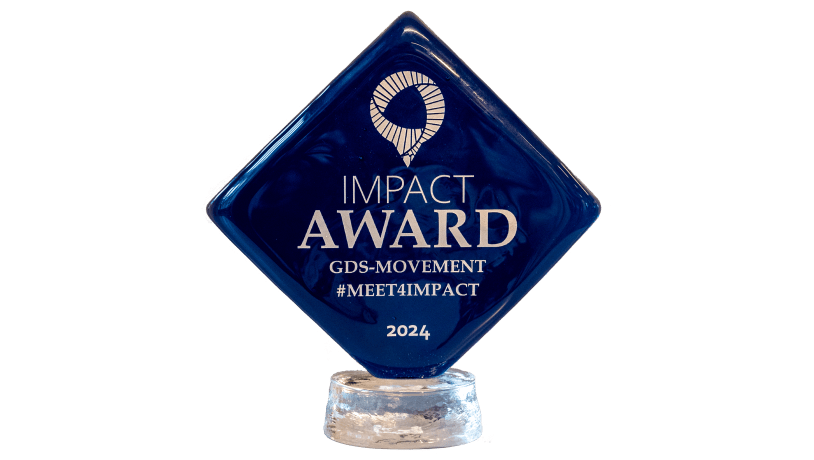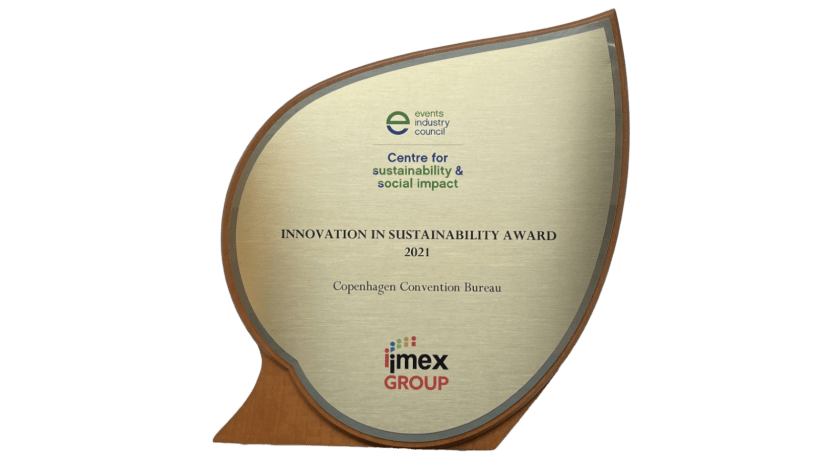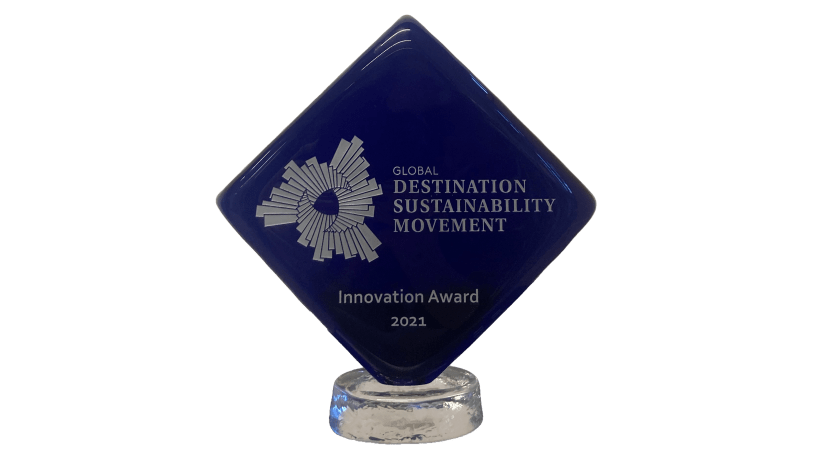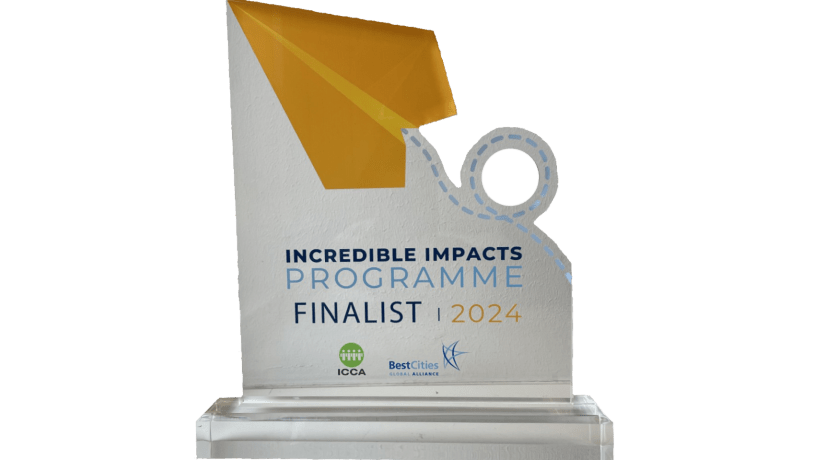Awards & Nominations
Copenhagen Legacy Lab has been recognised for its approach to creating lasting impacts from congresses and events.
Awards

GDS-MOVEMENT & #MEET4IMPACT Impact Award 2024
Acknowledges and celebrates a destination management organisation committed to legacy and impact through business events.
Read more: GDS-AWARDS 2024

IMEX-EIC Innovation in Sustainability Award 2022
Celebrates event professionals driving sustainability forward through innovation, collaboration and idea sharing.
The award was received for a legacy project in relation to WindEurope 2021.
Read more: Copenhagen Legacy Lab wins IMEX-EIC

GDS-MOVEMENT Innovation Award 2021
Recognises and showcases a destination using innovative solutions to drive sustainability performance.
Read more: GDS-AWARDS 2021
Nominations

SPOT:ON Activation Award 2024 (Sports Category)
Tomorrow's Awesome Games Showcase (CPH:TAGS), presented at Copenhagen Gaming Week 2024, has been shortlisted as one of four finalists.
Partners: Bellagroup, Blackbox Media, Games Denmark, and CPH:TAGS.
Read more: Legacy Case: Copenhagen Gaming Week 2024

ICCA and BestCities Global Alliance’s Incredible Impacts Programme 2024
The World News Media Congress 2024 has been honored for the initiative “The Copenhagen Criteria”, being recognised as one of three finalists.
Partners: The World Association of News Publishers (WAN-IFRA), Danish Media Association, NewsArcade, International People’s College (IPC), and University of Southern Denmark (SDU).
Read more: Legacy Case: WAN-IFRA 2024